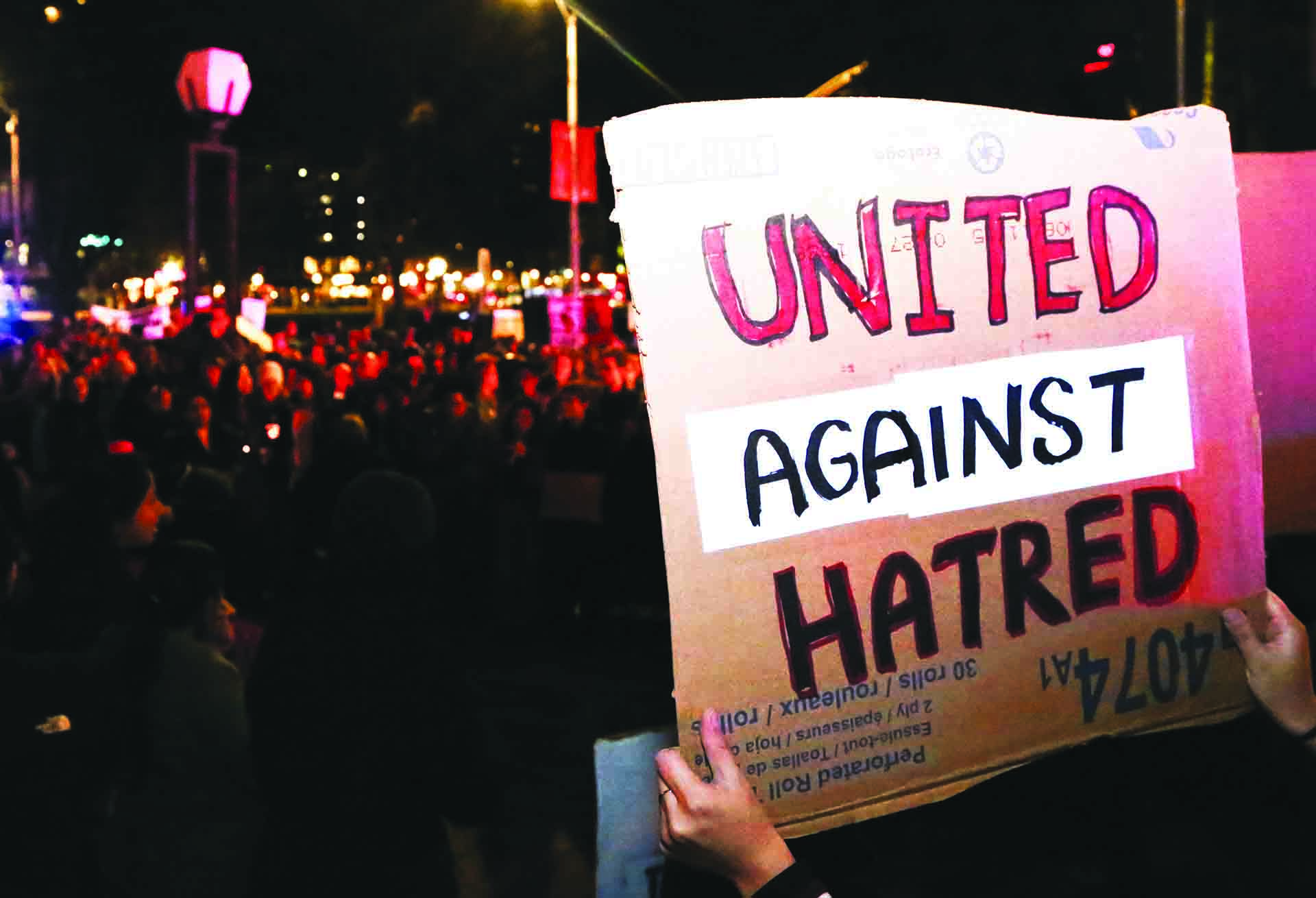
Members of religious communities in Connecticut have been working with churches and synagogues throughout the state to protect Connecticut’s more than 100,000 undocumented families.
Sanctuary church movements, in which members of a congregation shelter undocumented immigrants who have been ordered to be deported, gained momentum around the country after President Donald Trump’s election, said Rabbi Herbert Brockman of Congregation Mishkan Israel, a reform synagogue in Hamden. Across the United States, more than 700 congregations have signed onto the sanctuary church movement. Other than protecting immigrants — which congregations can do because Immigration and Customs Enforcement agents do not traditionally enter religious buildings and schools — the organization also organizes vigils and trains new volunteers.
“I think the Hebrew scriptures and the New Testament offer clear instructions on this issue,” said the Rev. Keri Aubert, priest in charge of St. Thomas’s Episcopal Church in New Haven, pointing out that there are passages in the Torah about caring for foreigners in one’s land and in the New Testament commanding Christians to love God and their neighbors — a group that includes undocumented residents.
Pastor Bonnie Scott DIV ’69, transitional senior minister for the United Church on the Green, agreed that religion calls on people to accept and care for others, adding that Jesus himself had to flee his home.
Shelley White, moderator at the United Church on the Green, said the church leadership wants to communicate that their congregation represents people who want to help and protect immigrants. She added that she believes “ally” is a more fitting term for the church than sanctuary, as the true sanctuary churches are those whose congregations are composed of mostly undocumented residents.
Local religious communities’ stances on this issue predate the current administration. Brockman’s temple and the Hamden Plains United Methodist Church have been involved with refugee resettlement over the past decade. The two religious groups organized a training session for volunteers on Feb. 19 at Congregation Mishkan, led by the Rev. Dr. Donna Schaper of the Judson Memorial Church in Manhattan, that was attended by more than 300 individuals from over 40 congregations.
“What was helpful about the meeting last Sunday was really educating people about the possibilities [for assisting undocumented immigrants],” said Allie Perry DIV ’80, worship coordinator for Shalom United Church of Christ and a coordinator for the movement.
Perry said the next step is creating a database of religious groups that attended the training and are willing to provide resources for undocumented immigrants. She said many congregations do not have the resources to house people for extended periods of time. Given the urgency of the situation, they might also not have time to come to an agreement on housing individuals, she said.
Other options include training to participate in a response network in the event of ICE raids, Perry said.
Brockman said religious institutions are not legally permitted to harbor those sought by law enforcement and that they must be honest if they are housing undocumented immigrants. While there is a long-standing tradition in which ICE agents respect the sanctity of houses of worship and do not make arrests in them, he said, this policy could change under the new administration.
Aubert, who attended the Feb. 19 training in Hamden, said that rather than attempt to form a new organization, religious groups are looking to mobilize their members and get them involved in existing immigrant rights work. Besides the possibility of sheltering undocumented immigrants in churches, this might include showing up to rallies, providing financial resources, accompanying immigrants to ICE hearings and even sheltering immigrants in individual homes, she said.
White said potential options for church involvement include opening the church as a place for people to gather in the event of a raid or rumored raid, having church members pick children up from school if their families are being threatened and helping immigrants meet bail or communicate with their family members if detained.
“If there were raids we would go there with cameras to provide information to people and to bear witness to whatever is going on,” she said.
The town of Hamden was incorporated in 1786.







